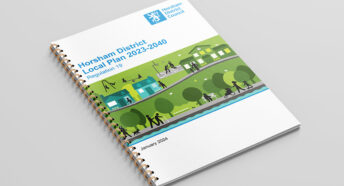Government’s Storm Overflows Discharge Reduction Plan is not on target
Letter published in the West Sussex Gazette, 31 August 2022.
Dear Sir
In a press release issued, 26 August, with the headline ‘Toughest targets ever introduced will crack down on sewage discharges’, the Government announced the publication of its ‘Storm Overflows Discharge Reduction Plan’.
Unfortunately, the promising headline is not matched by the limited targets and overlong timelines set by the Government for water companies to achieve.
The plan stipulates “so that discharges only happen when there is unusually heavy rain and when there is no immediate adverse impact to the local environment”:
- “By 2035, water companies will have to improve all storm overflows discharging into or near every designated bathing water; and improve 75% of overflows discharging to high priority nature sites”.
- “By 2050, this will apply to all remaining storm overflows covered by our targets, regardless of location”.
In essence the plan enables water companies to carry on polluting.
Furthermore, because of huge house-building targets, and because the incidence of ‘unusually heavy rain’ is forecast to increase, the resultant discharge of sewage into watercourses is likely to increase exponentially.
Consequently, the Government’s new plan highlights the urgent and vital need for joined-up planning in which the cumulative impact of sewage discharges on the environment and public health is determined and factored into the making of development plans, including the calculation of housing targets and the allocation of sites.
The Levelling Up and Regeneration Bill should be amended to include this requirement.
Furthermore, any development that is likely to increase pollution, regardless of whether a 5-year housing land supply can be demonstrated, should be refused.
What say Sussex’s MPs and Councillors?
Yours faithfully,
Dr R F Smith
Read more:
www.gov.uk › government › news › toughest-targets-ever-introduced-will-crack-down-on-sewage-spills
https://questions-statements.parliament.uk/written-statements/detail/2022-09-05/hcws281





